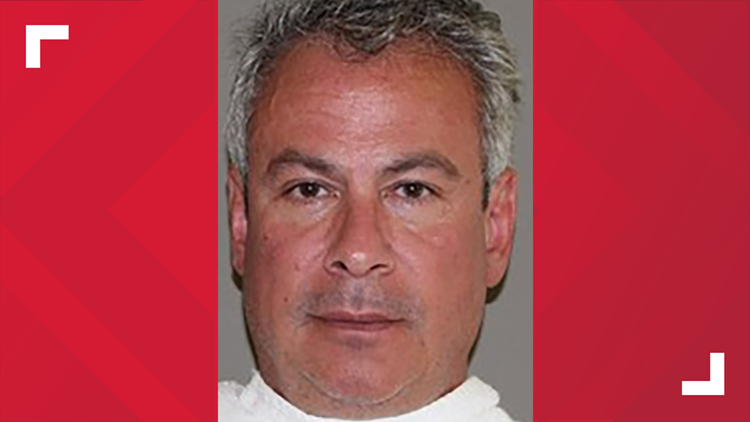Educational Background Job Interview
Choose a particular skill that you believe will be important in the job you seek, and speak about specific coursework that trained you with this skill. Be positive and express how you look forward to finding out how your academic skills can help solve real-world problems in the company. Mistakes You Should Avoid Just because this may be the easiest part of the interview, don't underestimate the opportunity to sell yourself. More importantly, don't let this part of the discussion be boring to the hiring manager. Don't repeat what is in the resume that is likely sitting in front of the hiring manager. Don't be modest. Be sure not to assume that the interviewer can tell from your resume or a brief summary of your education that he or she is now ready to make an informed decision. The interviewer is not the salesperson, you are. If you yourself don't feel your education is a good match for the job, be sure to prepare until you do. Remember that hiring managers already have a general idea of your education from your resume.
Educational background job interview sur le site
Discuss coursework that has built your skillset in order to be successful in the open position. Having a few specific responses ready will help, as certain school subjects can relate more to a given company. This is obviously for those who have more than one pending interview. Remember, your resume got you in the door, now it is up to you to close the deal! (For more educational interview questions, see how to answer Why Did You Choose Your Major? ) Underwater Basket Weaving Hopefully, your major aligns with your chosen industry. If this holds true, try to avoid talking about standard classes that you were forced to take unless they made a significant impact. "But those classes are important?!!! " … Of course, they are, but your hiring manager is most likely aware of those. Try to discuss elective courses that you chose to take. We are not saying to discuss the softball class you participated in with your buddies. Choose the electives that were included in your major course work. If your degree does not relate to your career path, don't panic!
For example, Law is not an academic degree, while French is. Normally, it is used in front of course, degree or master's. In Spanish: "acadèmico". Academic: 6. Subjects at school/university which are connected to a job/career like Engineering, Business Studies etc..., are called Vocational: (adjective) It is used for courses that train or prepare you for a career or job. For example, French is not an vocational degree, while Law is. Normally, it is used in front of course, degree, master's. In Spanish: "de formaciòn profesional". Vocational: 7. The school/university year is divided in to 3 parts, each part is called a Term: (noun) There are three terms in an academic year, winter term, spring term and summer term. In America, they use semester, which divides the academic year in to two parts. In Spanish: "trimestre". Term: 8. Part of a course at school/university where you have experience of working, is called a Work placement: (noun phrase) When you work in a company as part of your degree or master's.
Deciding whether or not to include your education on your resume can be difficult. It's not as though employers won't become aware of your education history prior to making the decision to hire you, but its presence on your resume (as well as its absence) can make or break your ability to land a job. Related: How to format your resume's education section Here are eight questions to think about when considering whether or not to include education in your resume: 1. Do you have a degree? If you only have a high school diploma, you can likely get by without having an education section. Even if a high school diploma is specifically listed as a requirement for the job, this detail is almost always addressed in the actual job application or during the interview, and doesn't need to be addressed in the limited space of a resume. If you attended college but didn't graduate, you can still list your education on your resume. List the name of your institution, along with a line clarifying "X years completed" or "X credit hours completed. "

Why did you attend the college you did, and what other schools did you consider? Are your grades and GPA reflective of the quality of work you can produce? How has your education prepared you for this job? Example: "I majored in legal studies, so several of my courses directly prepared me for the role of a paralegal. Each course in my major required extensive legal research and writing. Specifically, my final course was a capstone project in which I had to prepare documents like evidence lists, requests for discovery, subpoenas and questions for depositions to prepare a defense to a criminal law case. This course gave me the real-world experience I needed to know how to prepare legal documents and complete the legal research specific to each case I work on. " Why did you attend the college you did, and what other schools did you consider? Example: "I considered several schools when I was initially applying to colleges. I chose to begin my education at a community college because of the flexibility and cost savings it offered.
In Spanish: "experiencia laboral". Work placement: 9. The first qualification at university, is called an Undergraduate degree: (noun phrase) Normally, an undergraduate degree lasts 3 or 4 full-time (longer for studying one part-time). Remember, don't use career for degree. Career is used for professional experience. In Spanish: "licenciatura". Undergraduate degree: 10. The different parts/subjects of a degree or masters, are called Courses: (noun) Course can be used for both the different parts of a qualification (e. a development course of an Economics degree) or for the whole qualification. The context is important. In Spanish: "curso". Courses: Practice Now that you understand the educational background vocabulary, practise it by creating your own sentences in English with the new words/phrases.

They want to know how your education has prepared you for the role to which you're applying. This is an excellent opportunity to explain how a less conventional education can help you do the job. When you prepare for the interview, you should find out as much about the role and company as possible. You should go prepared, knowing how to match up your experiences to the requirements for the job. Your education isn't the be-all and end-all when you're looking for work. But it's essential to be able to say how it was of value to you, especially if you've just finished. More importantly, you need to know how your education is valuable to the employer.
I also plan to pursue further coursework in the future in order to keep learning and gain the qualifications to advance in this field.
- Jobs in Holyoke, Massachusetts for February, 2021 - Zippia
- Educational background job interview questionnaire
- When You Should Exclude Your Education from Your Resume
- Educational background job interview worksheet
- Educational background job interview answers
- Texas state openings job postings
- Educational background job interview checklist
- Educational background job interview questions
- Educational background job interview questions and answers
- Answering the “Tell Me About Your Educational Background” Interview Question for Interns | Chegg Internships
- Educational background job interview sur le site